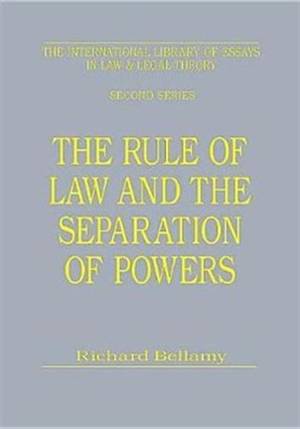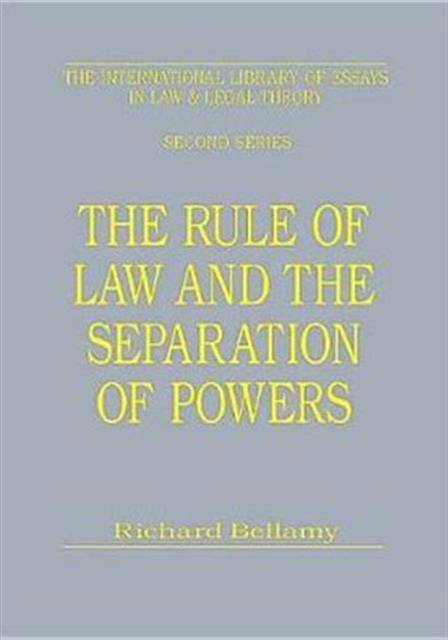
- Afhalen na 1 uur in een winkel met voorraad
- Gratis thuislevering in België vanaf € 30
- Ruim aanbod met 7 miljoen producten
- Afhalen na 1 uur in een winkel met voorraad
- Gratis thuislevering in België vanaf € 30
- Ruim aanbod met 7 miljoen producten
Zoeken
The Rule of Law and the Separation of Powers
€ 391,95
+ 783 punten
Omschrijving
The rule of law is frequently invoked in political debate, yet rarely defined with any precision. Some employ it as a synonym for democracy, others for the subordination of the legislature to a written constitution and its judicial guardians. It has been seen as obedience to the duly-recognised government, a form of governing through formal and general rule-like laws and the rule of principle. Given this diversity of view, it is perhaps unsurprising that certain scholars have regarded the concept as no more than a self-congratulatory rhetorical device. This collection of eighteen key essays from jurists, political theorists and public law political scientists, aims to explore the role law plays in the political system. The introduction evaluates their arguments. The first eleven essays identify the standard features associated with the rule of law. These are held to derive less from any characteristics of law per se than from a style of legislating and judging that gives equal consideration to all citizens. The next seven essays then explore how different ways of separating and dispersing power contribute to this democratic style of rule by forcing politicians and judges alike to treat people as equals and regard none as above the law.
Specificaties
Betrokkenen
- Uitgeverij:
Inhoud
- Aantal bladzijden:
- 600
- Taal:
- Engels
- Reeks:
Eigenschappen
- Productcode (EAN):
- 9780754624639
- Verschijningsdatum:
- 18/07/2005
- Uitvoering:
- Hardcover
- Formaat:
- Genaaid
- Afmetingen:
- 168 mm x 245 mm
- Gewicht:
- 1206 g

Alleen bij Standaard Boekhandel
+ 783 punten op je klantenkaart van Standaard Boekhandel
Beoordelingen
We publiceren alleen reviews die voldoen aan de voorwaarden voor reviews. Bekijk onze voorwaarden voor reviews.











